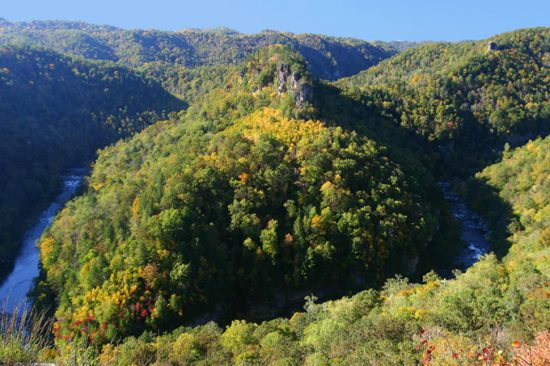Cleaning Up Coal Ash
For well over a century, power plants across the country have burned coal to generate electricity. And for just as long, leftover coal ash has been dumped in open, unlined pits near the power plant, usually located on a river or lake. Every year, U.S. power plants produce 130 million tons of coal ash, which is the second largest waste stream in the country after municipal garbage.
Coal ash concentrates the toxic heavy metals found in coal, including arsenic, mercury, lead and selenium. Stored in unlined, wet impoundments, coal ash has been leaking these toxics into our groundwater and surface waters for years. Sometimes these impoundments collapse — with disastrous results.
Yet government regulations for coal ash management are either non-existent or sparse, and there is little enforcement of the regulations that do exist. In North Carolina, this lack of oversight — and the complicity between state regulators, elected officials and Duke Energy — came to a boiling point in February 2014 when one of Duke’s coal ash impoundments spilled 39 million tons of ash into the Dan River.
Citizens living near North Carolina’s 33 coal ash impoundments — all of which have leaked — have fought for transparency from Duke and the state, and for cleanup of the pollution that threatens their property value, health and family. Their actions forced this issue into the headlines of news networks and to the forefront of environmental justice conversations in the United States.
Appalachian Voices stood with these communities as we worked for years to compel Duke Energy and the N.C. Department of Environmental Quality to excavate coal ash from all the North Carolina sites and dispose of it either in lined, dry landfills, away from waterways, or by recycling it for concrete or other uses, provided it’s done in a manner that protects public health and the environment.
On Jan. 2, 2020, North Carolina announced a historic settlement with one of the state’s most powerful corporations and polluters, Duke Energy. The settlement requires Duke to move nearly 80 million tons of toxic coal ash at six of its power plants to properly lined landfills onsite or recycle it.

Learn information about specific coal ash impoundments in the South, including health threats and safety ratings:
Additional Resources
Fact sheets, videos, links to academic research, and more
Sign Up to Act
Help us protect the health of our communities and waterways.
Latest News
Join our “Daylight Savings Challenge”
The autumn Daylight Savings Time often brings higher energy bills to Appalachian mountain communities. To help folks with their winter energy bills, the Appalachian Voices Energy Savings team has come up with the “Daylight Savings Challenge.” This fall, 100 Appalachian State University students will replace 160 old light bulbs with energy-efficient LED bulbs for Boone-area residents by the November 6, helping residents save money and energy.
Duke Energy’s empire grows with natural gas
Duke Energy’s purchase of Piedmont Natural Gas was finalized this week after North Carolina utility regulators signed off on the deal. The acquisition is only the latest development in a regionwide push to expand natural gas investments and infrastructure that foreshadows an energy future experts are urging us to avoid.
First national “Energy Efficiency Day” celebrated
Contact: Cat McCue, Communications Director 434-293-6373, cat@appvoices.org This…
What do electric co-ops have to do with economic justice?
The nonprofit WeOwnIt initiative was established in 2015 to create a national network for cooperative members of all sectors to have the rights, education and tools to implement organizing practices. This year, WeOwnIt is concentrating efforts towards electric co-ops.
A growing mine is a growing problem for the Russell Fork River
The history of the Doe Branch mine in Southwest Virginia is long and complicated, and its future remains unclear. A bankruptcy saga with the mine’s previous owner stalled development in the past year, but things appear to be getting back on track — putting the Russell Fork River at risk.
Community and conservation groups condemn FERC’s review of proposed Mountain Valley Pipeline
Contact: Joe Lovett, Appalachian Mountain Advocates, 304-520-2324, jlovett@appalmad.org…








